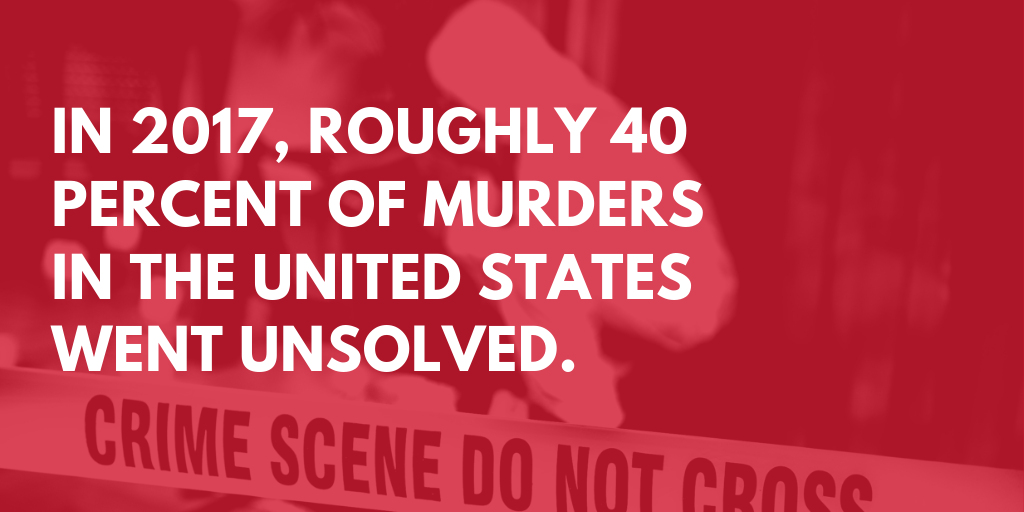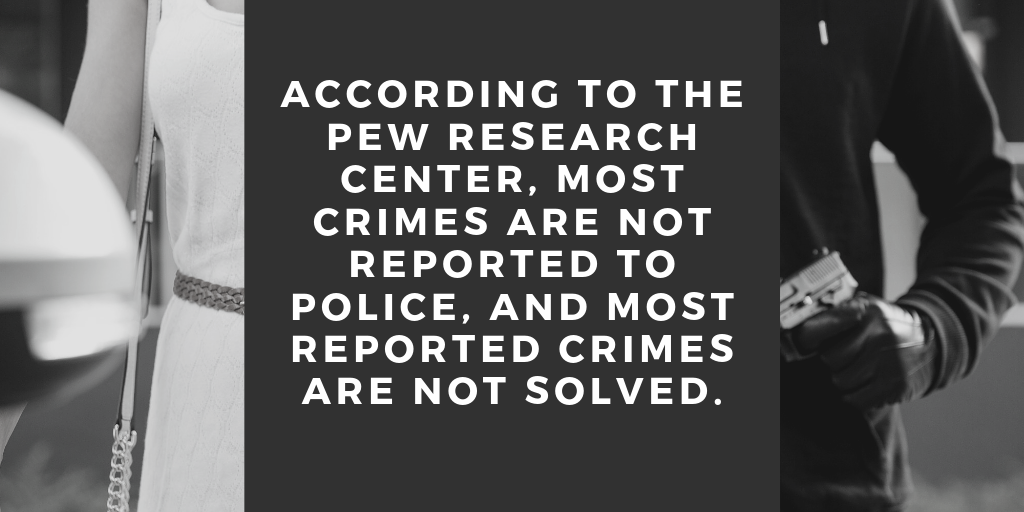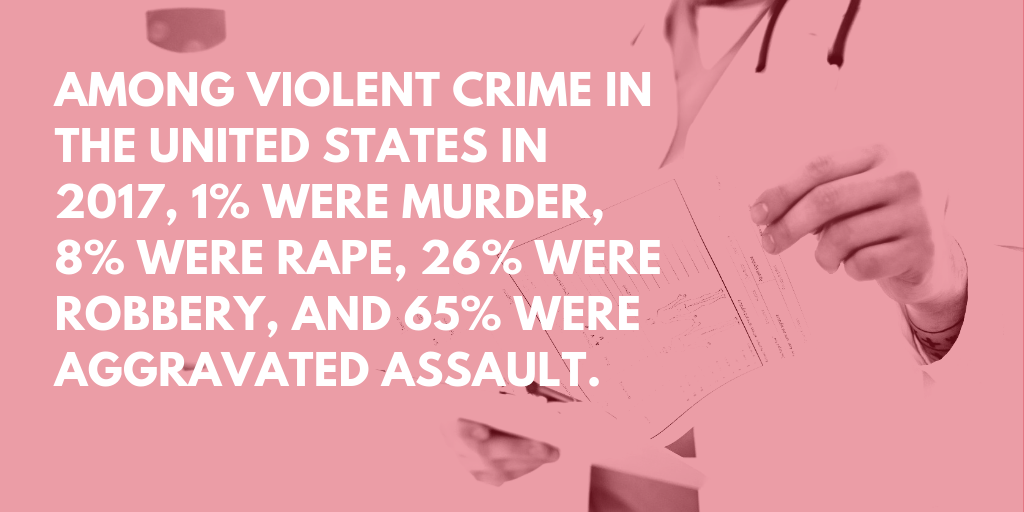![]()
The impossible could not have happened, therefore the impossible must be possible in spite of appearances. – Agatha Christie
Forensic Science is the use of the scientific methods of observation, evidence collection, and specimen analysis, as they are applied application to solving crimes. While 21st-century technology has added many tools for detectives and police, a large number of crimes go unsolved every year. Therefore ambitious, intelligent, and well-trained graduates with forensic science degrees can make a significant impact and help save lives while bringing justice to criminals.

Forensic Science degree programs will train students for various roles within the field of crime solving. Many different jobs are available within the field of forensic science, such as crime scene investigators, medical examiners, and laboratory analysts, so students should have an idea of their career path before they select a forensic degree program. This is especially pertinent for people who are looking to apply to master degree programs, as they are highly specialized and tailored to professional application.
Students who enroll in a forensic science degree program will start by taking basic science classes, such as chemistry, pathology, and toxicology, that provide a foundation for specialization into a particular area. There is a wide range of routes and degree tracks for students to consider after learning the basics. Your desired career in forensics should help determine what type of degree you want to pursue. If you see yourself visiting crime scenes as a detective, then you may wish to continue a degree in criminal justice. If you see yourself working behind the scenes in the laboratory analyzing samples that have been gathered from crime scenes, then you may want to pursue a degree in forensic DNA and serology. If you can see yourself examining cadavers and autopsies, then you may wish to pursue a degree in forensic anthropology. Different colleges and universities will offer different specialization tracks, so it is crucial that you consider your career goals before applying to schools.
The field of forensic science has been rapidly evolving in the 21st century. Some of the new tools that are being used in the field of forensics are high-speed ballistics photography, 3D forensic facial reconstruction, carbon dating, and DNA sequencing. There is also a variety of forensic software that helps forensic scientists organize and analyze data and perform other tasks as well. The most popular forensic software includes Open Computer Forensics Architecture (OCFA), Computer Aided Investigative Environment (CAINE), and X-Ways Forensics. The best way to learn to use these technologies is by learning from professors and experts in a degree program. Many degree programs will offer their students professional internships or practicums, where they will get hands-on experience using cutting-edge technology to solve crimes. Recently, DNA databases that are used to help people figure out their ancestry have been utilized to help aid law enforcement officials, though this practice has raised concerns about consumer privacy laws. A degree program will also help you understand the ethics associated with new technologies.

A degree in forensic science will allow you to have a significant impact on criminal justice and help keep populations safe while deterring would-be criminals from attempting robbery, murder, and other evil deeds.
This guide is designed to help prospective students consider their options for forensic science degrees by assisting them to understand the probable professional outcome of their degree program. Here at DegreeQuery, we have compiled many resources that will help you find the best school and degree program that will allow you to earn stable employment within the field of investigative science. While reading it, you should consider your academic and professional priorities, including:
- What your natural proclivities and talents are, as well as your weaknesses, as they will help you decide the curriculum that will allow you to thrive and master the skills that you need to become a successful professional.
- What type of delivery option you would like for your degree. While there are plenty of traditional classroom programs for forensic science degrees, there are an increasing amount of online degree programs as well. If you are worried about schedule conflicts and commuting, an online degree program might be a good choice for you.
- What type of setting do you see yourself thriving in? There are many different institutions, offices, and laboratories that employ forensic science professionals. The specialization that you choose will inform the environment that you work in after graduating.
- What your degree price range is. Degree programs can vary greatly in their total cost, and prospective students should, therefore, be on the lookout for finding a program that is a good deal so that they can earn a quick return on their investment. While students can take out loans to pay for school, interest rates can add up and create a cycle of debt, especially if the loans are private as opposed to federal. Another route is to apply for a scholarship.
- How much time you will be able to devote to your studies every week. There are several different degree completion timeframes, as many programs allow students to take a double load with an accelerated program, or work at their own pace with a part-time program.
- What kind of practicum or internship experience you would like to participate in while earning your degree. Different schools have partnerships with local law enforcement and detective agencies, so students should, therefore, inquire about the experience options that they will be looking at when the time comes to put their knowledge to practical use.
- What your academic credentials are, and how they will help you get into the school of your choice. Prospective students should consider a range of schools, from safety schools that you will most likely be accepted into, to target schools that seem like a good fit, and reach schools that are the most desirable place to earn your degree.
Many more questions will arise during your school search, so you should be sure to do the work to gather all of the information you can to make the best decision. In addition to professional outcomes, you should also consider what types of skills you are most interested in building, as many of them will be useful outside the confines of forensic science. The next section looks over skills you will develop while taking classes for a forensic science curriculum.
Forensic Science Degrees Build Skills and Aptitudes In:

- Chemistry: When the practice of chemistry is applied to forensic science, it is usually called toxicology. Toxicologists help identify unknown materials and substances that appear at a crime scene to aid an investigation. Toxicologists have many methods that they use, including various types of chromatography and spectroscopy. Students in forensic chemistry classes will learn how to utilize and apply these advanced techniques to identify substances.
- Biology: Evidence that is left at a crime scene can often be connected to perpetrators or suspects through DNA analysis. Other biological studies such as entomology, odontology, and pathology are also used to link perpetrators to evidence. Forensic biologists must make sure to maintain the proper chain of custody for evidence, and make sure that it does not become contaminated or altered while being stored or studied.
- Statistics: There is a wide range of statistics that are utilized in law enforcement settings and are required for DNA analysis. Sometimes a DNA mixture can contain evidence from multiple persons, so forensic scientists use likelihood ratios to consider the probability that a person can be confidently identified. DNA profiles also include random match probabilities and the combined probability of inclusion.
- Research Methods: There is perhaps no better degree to improve your research method skills, as forensic science programs train people to gather all possible information and then utilize scientific techniques to decide whether or not you can prove a hypothesis beyond a reasonable doubt. Forensic scientists have to be scrupulous followers of the scientific method, or else their findings will not hold up in court.
- Evidence Retrieval and Archives: Forensic science students will learn how to retrieve evidence samples from a crime scene and properly label and store it so that it can be accessed and used to build a case. Chain of command must be followed or else the evidence is no longer usable in court.
- Critical Thinking: Perhaps the most important skill for detectives, students will hone their critical thinking by being able to conclude with a limited amount of evidence accurately. Students will be forced to pay attention to small details in physical spaces, and the result will be that they spot important clues that other people would look past.
- Technology: Students in forensic degree programs can learn how to use a wide range of new technologies such as forensic databases, DNA sequencing, and carbon dating. These are highly specialized technologies that are almost impossible to learn without the help of a professor or mentor.
Students will likely emphasize one or two of these skills in their degree program, as different schools offer their own curricula, and specializations further break down the specific skills that you will focus on. With all of the options available out there, beginning your school search can feel overwhelming. Fortunately, you’ve taken the first step by checking out our resources here at DegreeQuery:

How Can We Help You Find the Right Forensic Science Degree for You?
With the amount of degree program options, finding the best school that fits your needs can feel overwhelming. Fortunately, here at DegreeQuery, we have compiled many resources to help you understand your options so you can make the best choice in your academic and professional career. We have various rankings of schools based on criteria such as price, graduation rates, graduate job placements, and other metrics that measure how successful an institution is at preparing their students for professional success. We have also answered various popular questions that relate specifically to forensic science degree programs. Some of what we’ve compiled for you to consider include:
Rankings
- Top 10 Graduate Degree Programs in Criminal Justice
- Top 50 Degrees For Changing The World
- Top 50 Degrees for the Future
- Top 10 Highest Paying Science Careers
- 50 Best Online Master’s Degrees 2019
- Top 50 Highest Paying Master’s Degrees
- 50 Best Online Degrees for 2019
- Best Online Master’s Degree Programs in Cybersecurity
- 50 Best Online Degrees for 2019
- Top 20 Highest Paying Online Degrees
Frequently Asked Questions
- What Degree Should I get for Forensic Science?
- What Degree Do I Need To Be a Forensic Serologist?
- How Do I Become a Forensic Anthropologist?
- How Do I Become a Forensic Firearms and Ballistics Expert?
- Why should I consider a degree in Economics?
- What Degree Do I Need For Forensic Engineering??
- What Classes Will I Take in a Criminal Justice Degree?
These are just some of the resources that we have compiled for prospective students who are looking into potential degree programs in forensic science and other fields. If you find a school that might be a good fit for you, you should follow the links to their school website to request additional information about their degrees. In the next section, we’ll take at the different degree levels for forensic science students.

What are the Different Levels of Forensic Science Degrees?
Associates in Forensic Science
Associate Degrees are two-year degrees that can allow you to get your foot in the door into a field. These are excellent choices for students who want to enter the workforce so that they can learn from experience. After gaining some experience in law enforcement or detective agencies, students will then be able to get the most out of their continued education, as they will know the specific application of the knowledge they are gaining and will be able to choose their specialization knowing precisely what they are getting themselves into. Associates in Forensic Science degree programs will provide students with introductory courses such as biology, history of forensic science, and research methods.
Bachelors in Forensic Science
Bachelor Degrees are typically four-year programs that prepare students to enter the workforce or go on to earn a graduate degree. While students who are looking to pursue a graduate degree in forensic science will benefit significantly from earning a bachelors in the field, it is not entirely necessary. Bachelor in forensic science programs often requires their students to declare a specialization within the field. Often bachelor degree candidates will earn their degree in an area of science, such as biology or chemistry, with a minor in forensic science. Some of the upper-level courses that students will take a bachelors in forensic science program include physics, anatomy and physiology, and genetics.
Masters in Forensic Science
Masters programs are generally two-year programs that focus on a particular specialization within the field of forensic science. Students should have a specific career path in mind if they are looking to apply to masters programs, as careers at the upper-levels of forensic science require highly particular skill sets. In the next section, we will break down some of the most popular specializations for students to choose from. A masters degree will qualify graduates for some of the most lucrative career options in forensic science, including the medical examiner, forensic engineers, and crime laboratory analysts. These positions also come with excellent job stability, as the amount of forensic professionals employed in the United States is projected to go up over the next decade according to the Bureau of Labor Statistics.

Doctorates in Forensic Science
Doctorates in Forensic Science are meant for professionals who are looking to revolutionize the field of forensic science. Doctorates take anywhere from three to seven years to complete and go beyond preparing students for a particular career path. With technology providing a wide variety of new tools for criminal justice, there is a wide range of new possibilities and dynamics that are waiting to be harnessed by motivated young professionals. Some of the most famous forensic scientists in history include Alec Jeffreys, Sara Bisel, and Cyril Wecht. If you are looking to enter the history books and change the path of forensic science for the better, then a doctorate in forensic science will be the right choice.
What are the Different Specializations Within Forensic Science?
Criminal Justice
A specialization in criminal justice will provide students with an understanding of the ethics, history, and sociological factors that are at play in the justice system. If you are looking to work for a police department or a prison, then a specialization in criminal justice is a good choice. Some of the courses that students commonly take in criminal justice specialization tracks include sociology of drugs and society, deviance and social control, and criminal law and procedure.
Forensic Toxicology
Forensic toxicologists use a variety of methods to aid medical or legal investigations of death. Students will learn how to utilize analytical chemistry, clinical chemistry, and pharmacology techniques to identify specimens obtained from crime scenes or cadavers. A specialization in forensic toxicology will focus heavily on chemistry and serology. Some of the courses that students commonly take in forensic toxicology specialization tracks include neuropharmacology, structural biology, and infectious disease control.
Digital Forensics
Crimes are increasingly planned and committed with the aid of computer technology. Digital forensics is the part of forensic science that encompasses the recovery and investigation of evidence that is found in smartphones, computers, or the internet. DNA databases have recently expanded due to genealogical websites that help citizens figure out their ancestry, and they have been used in cases such as the Golden State Killer. These practices have raised concerns over data privacy, though many people have opted to allow law enforcement to use their DNA information to catch criminals. This is just one of the new dynamics that are at play with modern forensic technology, and they will continue to present themselves as our technology evolves. Some of the courses that students commonly take in a digital forensic specialization track include cybercrime, database forensics and malware, and digital ethics.

Forensic Odontology
Forensic odontology is the practice of using dental science for legal investigations, most commonly by comparing dental records to a bite mark left on a victim or at the scene, or the identification or a corpse. Forensic odontologists have usually earned a dental degree before they pursue a specialized degree in forensic odontology. If you are a dentist that is looking to increase the drama in your career, a specialized degree in forensic dentistry will prepare you to help criminal justice professionals. Some of the courses that students commonly take in a forensic odontology specialization track include dental and maxillofacial anatomy, the cellular and molecular basis of disease, and laboratory methods in forensic odontology.
Forensic Science Degrees in Conclusion
Forensic science is relatively new, as Edmond Locard invented it in 1909. Over the past century, we have greatly improved our justice system by utilizing breakthroughs in forensic science to apprehend perpetrators and keep innocent people from receiving wrongful punishment. Today, there are many great careers within the field of forensic science where highly trained professionals collaborate to utilize various scientific techniques that can draw significant conclusions from small amounts of evidence.

Forensic degrees are practical choices among subjects in scientific fields, as they apply scientific concepts to specific real-world situations in criminal justice. The degree programs give students specialized training in technology and scientific procedures that will provide them with tools they need to earn and succeed in a lucrative and stable career in forensic science.

